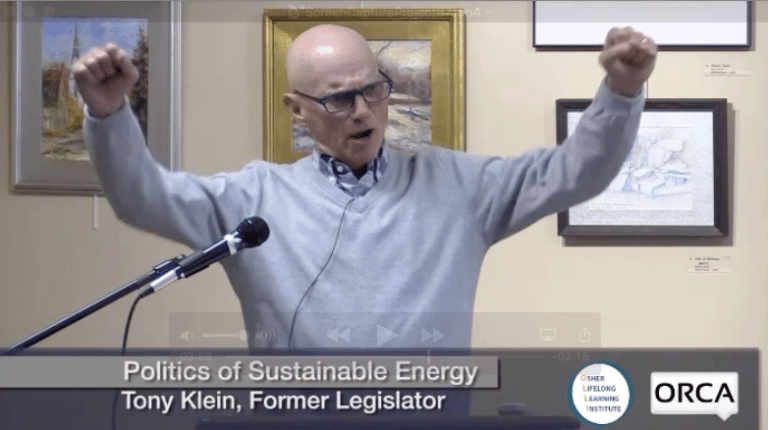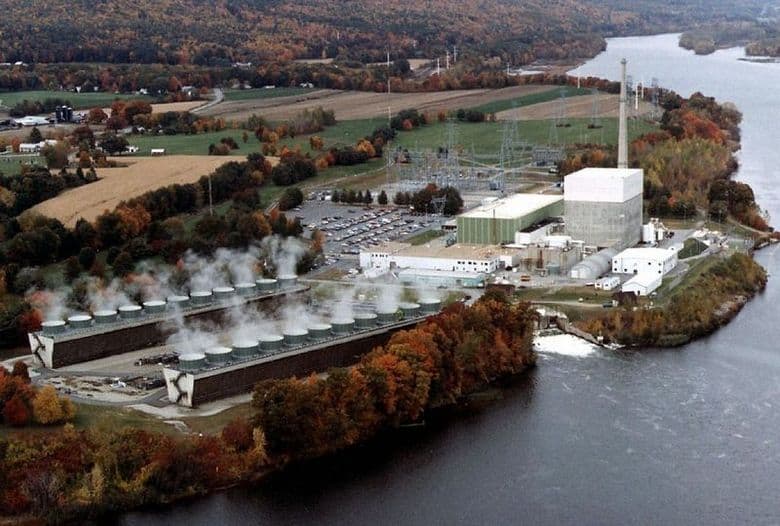Self-Described Antinuclear, Pro-Renewable Former Vermont Legislator Claims “We were angels, doing God’s work.”
Tony Klein, a former Vermont legislator who played an important role in Vermont energy law creation during the last decade, recently gave a fascinating talk at the Osher Lifelong Learning Institute at the University of Vermont. Fortunately for those of us with a deep interest in energy politics, the talk was competently recorded for posterity…


